So that sorrow does not finish us
Alex Maldonado-Lizardi and Xiomara Cintron-Garcia serve with Justapaz in Colombia.
Camilo Anderson Chávez Castro’s* pastora, Carmen Lara*, told us this story in 2021 for the first time. She was far from her municipality, in the dark dining room of a church in Caucasia, Antioquia, one block from one of the banks of the Cauca River, occupied by the debris of the fishermen in the afternoon.
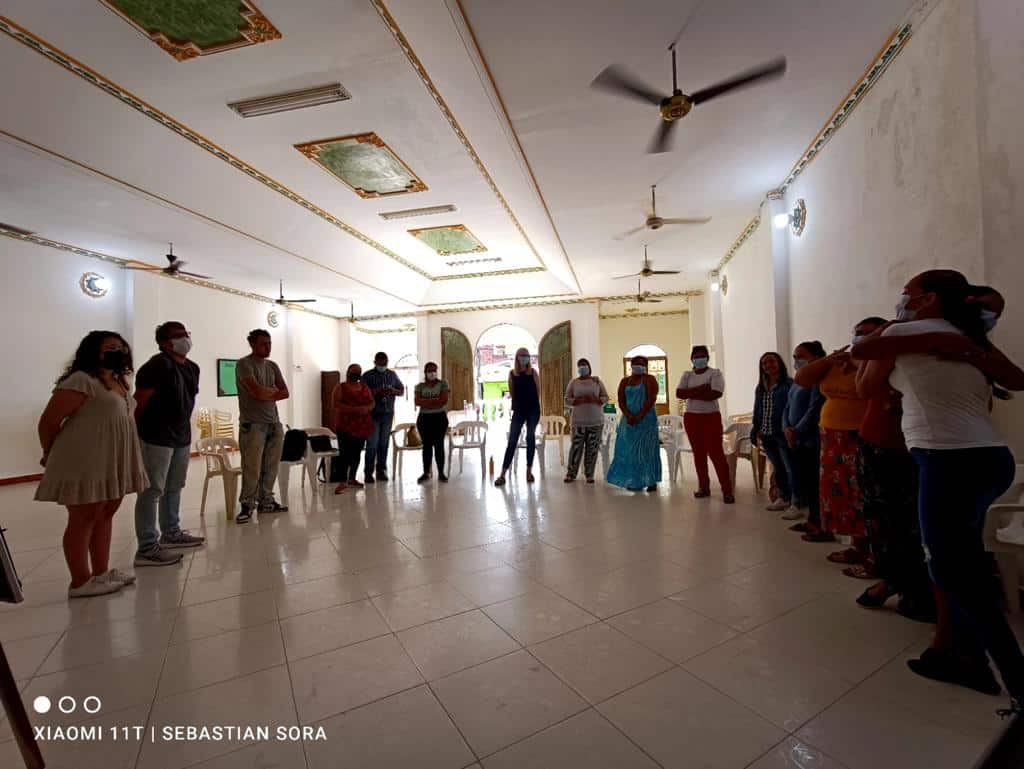
Camilo arrived in the municipality of El Bagre at a very young age. He was housed by the pastoral family of the church in their home, just like other young people before when they needed it at some point. They are a pastoral family of four: the pastora, her husband, and their two daughters. With Camilo, they became five. It is a story that occurs more frequently than one thinks. “We have always had boys staying at the house,” she said. There are times when families disband, and the children are left alone in hot municipalities such as those that occupy the Bajo Cauca region in Antioquia. Sometimes they are matters of irreparable relationships, sudden abandonment, and remote jobs that leave home empty. Camilo arrived at El Bagre like this. His mother was forced to look for work far away. She then crossed her fingers and talked to the pastora of the church to make her stay with Camilo. After all, she helped to raise a congregation at the village of Río Man, in the Antioquia municipality of Cáceres, 131 km from there. They were friends, she told us. Faith, brotherhood, sorority, hospitality…the widow of Sarepta, Rahab, Ruth and Naomi, Mary, and Elizabeth.
Eventually, Camilo was baptized in the same community that hosted him, a region disputed by six armed groups of different faces related to drug trafficking, mining and money laundering, extortion, arms trafficking, and other businesses.
How to open a house in this environment? Whom? To whom? Why?
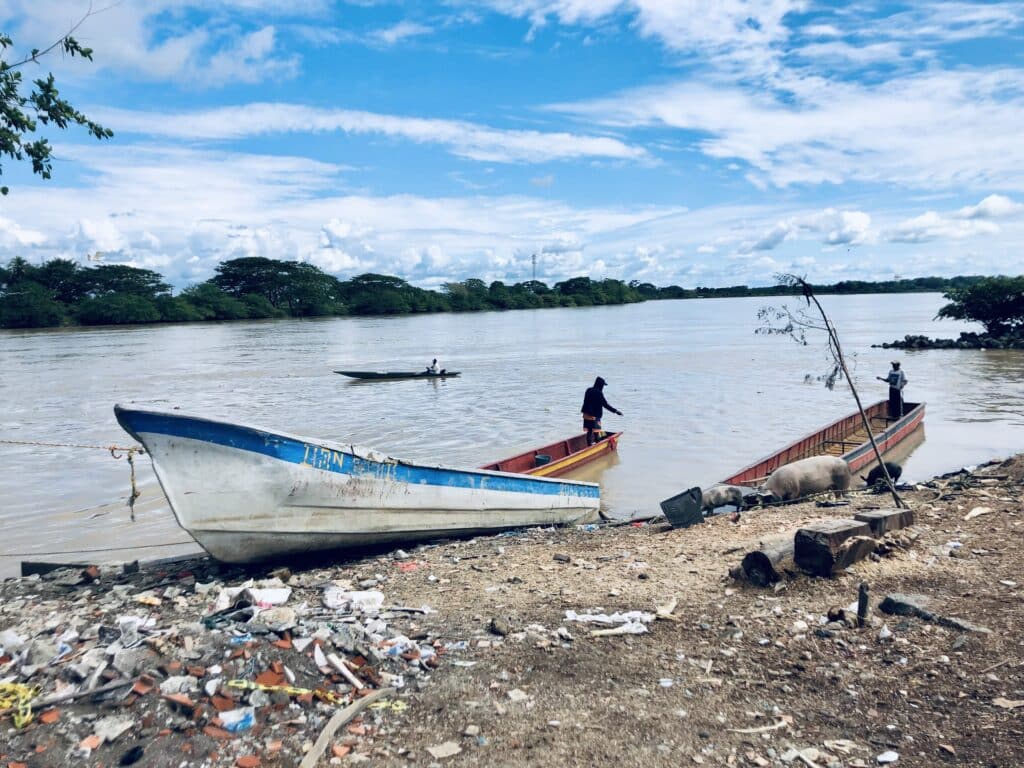
It is just that some faith practices end up being a dispute to vicissitude. They are concrete forms of fidelity to God “in accompanying other human beings, communities, and peoples where God is present, making possible the history of salvation of its creation.” That was said in 2006 by the Executive Secretariat of the Ecumenical Network of Colombia. These are the crazy things that brothers and sisters do because they consider themselves such. Ways in which we address the fundamental needs of human beings in favor of life at its fullness for all. (Bass, p.186) None of these things are planned. No one knows what to expect from them. They are like a wind that blows wherever it pleases, then you hear its sound in the leaves of the trees, but you cannot tell where it comes from or where it is going (John 3.8).
In 2019 Camilo was 23 years old and was a leader of the youth ministry of Iglesia Cristo Viene in his neighborhood. At 1:00 pm on Saturday, October 26, 2019, Camilo had just finished fast and was having lunch at the pastora’s home. There came a man on a motorcycle who asked Camilo to come out. Camilo finished his lunch and went with the man on the bike. Earlier in the morning, Camilo had taught in the church and had the keys to the temple with him, but after lunch and noon, he did not return.
Pastora Carmen says there were regional elections for the mayor’s office the next day. The church had previously been asked to collaborate with 200 meals prepared for the event. At dawn on Sunday, the 27th, they did so. No mourning, no grief, or anything. “We draw strength from weakness,” she reflects with all the nerve of Corinthian theology. The weakness of God is stronger than us. “The church hasn’t suffered the impact yet,” she told us. “One learns to have affection for that child.”
And for thousands more.
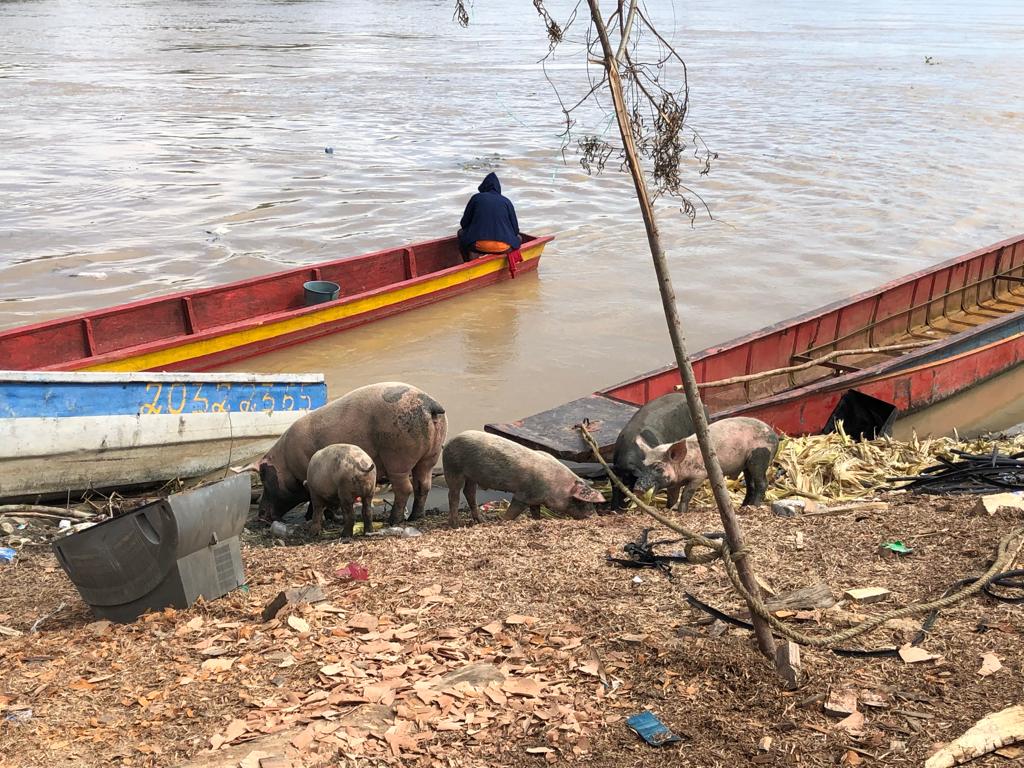
According to statistics from the Victims Unit (Unidad para la Atención y Reparación Integral a las Víctimas), between January 1, 1985, and December 31, 2022, in Colombia, 9,405,522 victims of the armed conflict were reported. Of these, 190,889 were for acts related to events of forced disappearance. The recently released report of the Truth Commission, Hay futuro si hay verdad. Informe Final de la Comisión para el Esclarecimiento de la Verdad, la Convivencia y la No Repetición (There is a future if there is truth. Final Report of the Commission for the Clarification of Truth, Coexistence, and Non-Repetition), disclosed other data. Between 1985 and 2016, around 121,768 people were declared missing, aware that there could be more (Informe final…, 137). The “SIRDEC” – Sistema de Información Red de Desaparecidos y Cadáveres (Network of Disappeared and Corpses Information System)- shows and extends the number of people reported as missing from the year 1930 to December 2022. In ninety-two years, there were 231,448 people. This is just data, but the impact is immeasurable. According to the Truth Commission Report:
The forced disappearance of people supposes a violation of the right to life that removes the person from their social and family environment. It is not known what happened to them. Those responsible do not give an account of what happened, hide their fate, death, or what happened. For the relatives, it means an open wound and the duel remains open due to the impossibility of knowing what happened. In cases of forced disappearances where state agents or groups participate with their acquiescence, such as paramilitary groups, ignorance of the destination is combined with the concealment of reality or evidence or the denial of information to the next of kin. Many others have disappeared after being recruited or kidnapped. People who died during captivity or were murdered mainly by the guerrillas and whose fate is unknown to their families (Final Report…, 136).
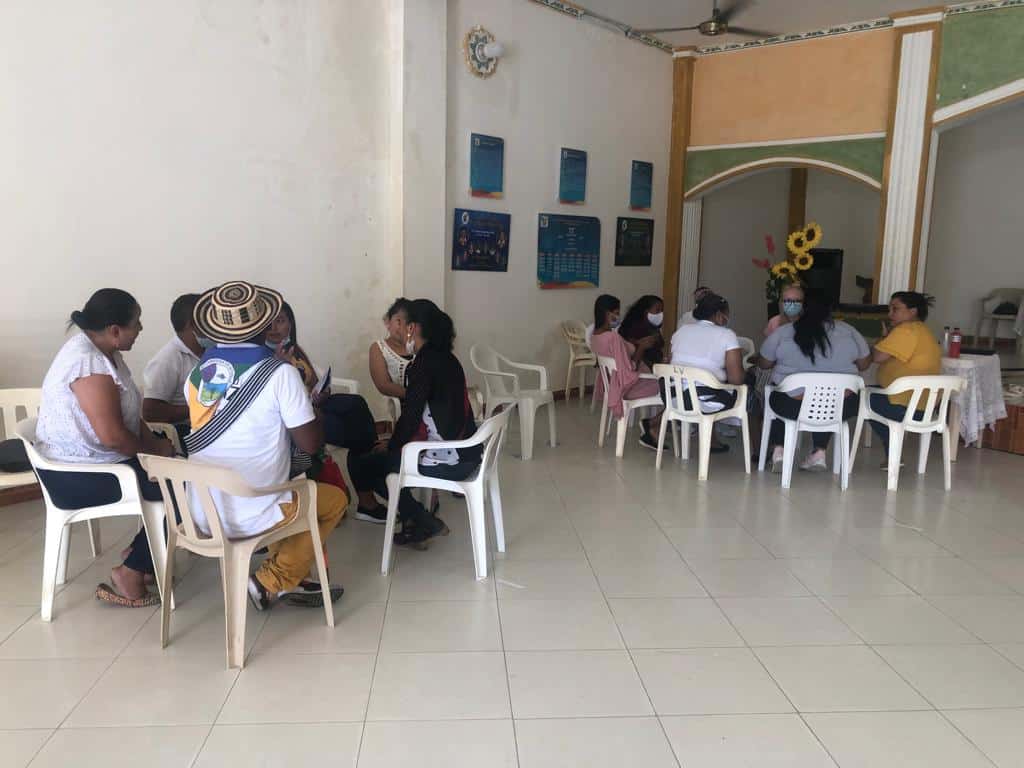
Because of this, Pastora Carmen’s mistrust prevailed at first, then promptness with security issues for her community prospered: “Now I am stricter with young people out of fear… more suspicion. I especially ask the young people of the church to account. But how do we get a member to tell us about their past?”
What are we doing? What are we forming part of, participating, as the Colombian poet Yulieth Mora Garzón wrote, “to end the rough days” so that sorrow does not end us?
As we talked, occasional people stopped by to pick up coffee, have snacks and go to the bathroom, and then we fell silent. We arranged the plastic chairs, hoping no more people were in the dining room. Outside, motorcycles passed by (sometimes with up to three people on board), street vendors, and the occasional breeze with the midday dust.
We asked Pastora Carmen if this event affected her faith practices. We ask her if she still hosts people in his house. “Right now, a kid is staying there. I host them, and they come to the table,” she said.
From where does Pastora Carmen get this strength?
It must be a response of grace. These are practices that work well that work the gentleness of grace, mercy, and God’s gift. It is the participation of an “effective love,” or efficacy of faith sustained in the knowledge of all the good that is in us (Phil.1.6). It is, as the theologian Dorothy Bass puts it, the grateful response to the presence of God in our own and collective history, embodied in caring for the sick, raising children, making decisions, giving, and sharing food with others, going beyond fear so that our constant option to live is never sustained in fear of death but in the love of life (Heb. 2.14-15). These steps always aspire to the ethical goodness of Psalm 84 because we have also recognized what the Puerto Rican minister, Moisés Rosa Ramos, did in verse: “You are the time in which all the desire to live awakens….”
Alex Maldonado-Lizardi and Xiomara Cintron-Garcia serve with Justapaz in Colombia. Their appointments are made possible by gifts to the Disciples Mission Fund, Our Church’s Wider Mission, and your special gifts.
Make a gift that supports the work of Alex and Xiomara
Para que el pesar no nos acabe
La pastora de Camilo Anderson Chávez Castro*, Carmen Lara*, nos contó esto en 2021, dos años después, por primera vez, lejos de su municipio, en el comedor oscuro de una iglesia en Caucasia, Antioquia, a una cuadra de una de las orillas del río Cauca, ocupada por la basura de los pescadores en la tarde.

Camilo llegó muy joven al municipio de El Bagre y fue alojado por la familia pastoral de la iglesia en su casa, al igual que antes a otros jóvenes cuando en algún momento lo necesitaron. En la familia pastoral son cuatro: la pastora, su esposo y sus dos hijas. Con Camilo fueron cinco. Es una historia más frecuente de lo que uno piensa. “Siempre hemos tenido muchachos hospedados en la casa”, contó. Hay veces que las familias se desbandan y los hijos quedan solos en municipios calurosos como los que ocupan la región del Bajo Cauca en Antioquia. A veces son asuntos de relaciones irreparables, abandonos repentinos, trabajos apartadísimos que dejan vacío un hogar. Camilo llegó así. Su madre se vio obligada a buscar trabajo lejos, cruzó los dedos y habló con la pastora de la iglesia para que quedara con Camilo. Después de todo, ella misma en algún momento ayudó a levantar una congregación en la vereda Río Man del municipio antioqueño de Cáceres a 131 km de allí. Eran amigas, nos contó. La fe, la hermandad, la sororidad, la hospitalidad…la viuda de Sarepta, Rahab, Rut y Noemí, María y Elizabet.
Eventualmente, Camilo fue bautizado en la misma comunidad que lo alojó, una región disputada por seis grupos armados de distinto rostro sobre cadenas de narcotráfico, minería y lavado de dinero, extorsiones, tráfico de armas y otros negocios.
¿Cómo abrir la casa en este entorno? ¿A quién? ¿Por qué? Y es que hay prácticas de fe que acaban siendo un desafío a la vicisitud, formas concretas de la fidelidad a Dios “en el acompañamiento a otros seres humanos, a las comunidades y los pueblos donde Dios se hace presente, haciendo posible la historia de la salvación de su creación”, decía en el 2006 la Secretaría Ejecutiva de la Red Ecuménica de Colombia. Son las locuras que hermanos y hermanas hacen porque se consideran tales. Maneras en que nos dirigimos a las necesidades fundamentales de los seres humanos en favor de una vida plena para todos y todas. (Bass, p.186) Nada de estas cosas se planifican. Nadie sabe qué esperar de ellas. Son como un viento que sopla de donde quiere y que uno no sabe a dónde va.
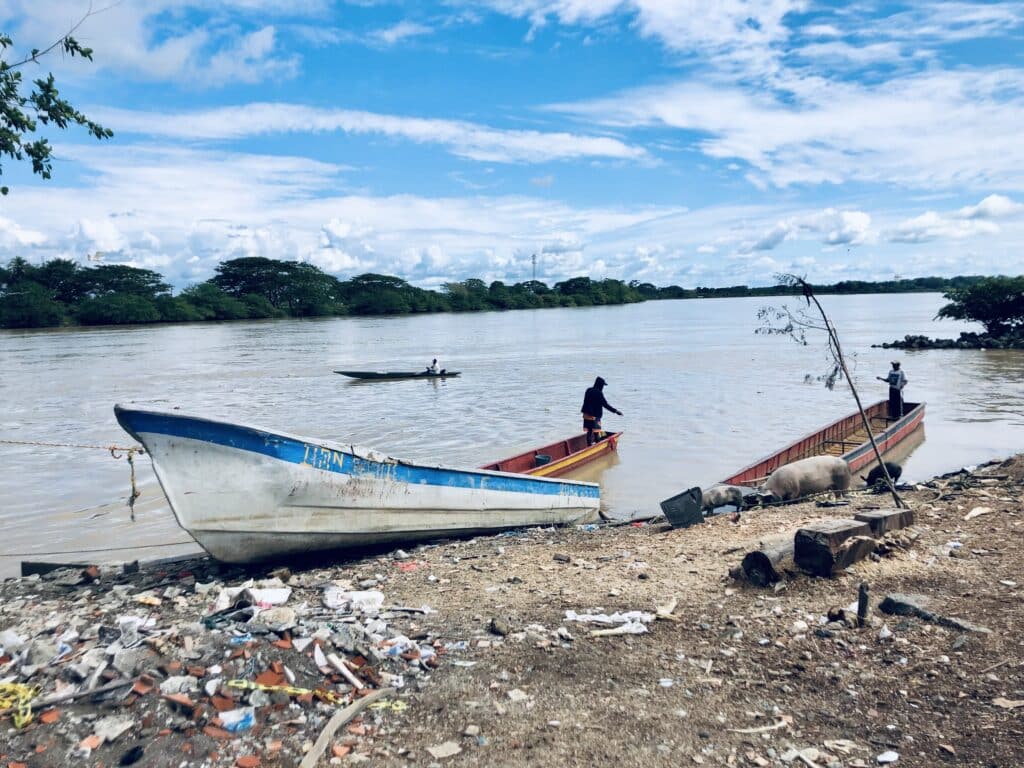
En 2019 Camilo tenía 23 años y formaba parte del ministerio juvenil de la Iglesia en su barrio. A la 1:00 pm del sábado, 26 de octubre de 2019, Camilo recién terminaba un ayuno y almorzaba en la casa pastoral. Hasta allí llegó un hombre quien le pidió a Camilo que saliera. Así que Camilo terminó su almuerzo y se fue con el hombre en moto. Antes, en la mañana, Camilo había enseñado en la iglesia y llevaba las llaves del templo consigo, pero, pasado el almuerzo y el mediodía, no regresó.
Cuenta la pastora que al día siguiente había elecciones regionales para la alcaldía, para lo cual previamente se le había solicitado a la iglesia que colaborara con 200 comidas preparadas para el evento. De madrugada, el domingo, 27, así lo hicieron. Sin duelos ni nada. “Sacamos fuerza de la debilidad”, reflexiona con todo el nervio de la teología corintia. Lo débil de Dios que es más fuerte que nosotros. “La iglesia no había sufrido el impacto”, nos decía. “Uno aprende a tener afectos por ese hijo”.
Y por miles más.

De acuerdo con cifras de la Unidad de Víctimas, entre el 1 de enero de 1985 y el 31 de diciembre de 2022, en Colombia existen 9.405.522 víctimas del conflicto armado. De ellas, 190.889 lo fueron de hechos relacionados a eventos de desaparición forzada. El recién divulgado informe de la Comisión de la Verdad, Hay futuro si hay verdad. Informe Final de la Comisión para el Esclarecimiento de la Verdad, la Convivencia y la No Repetición, divulgó otros datos. Entre los años 1985 y 2016, alrededor de 121.768 personas fueron declaradas como desaparecidas, conscientes de que muy bien podrían ser más (Informe Final… , 137). El SIRDEC – Sistema de Información Red de Desaparecidos y Cadáveres – arroja y extiende la cuantía de personas reportadas como desaparecidas al año 1930 hasta diciembre del año 2022. En noventaidós años, 231.448 personas. Estos son datos, pero el impacto es inconmensurable. Según el Informe de la Comisión de la Verdad:
La desaparición forzada de personas supone una violación del derecho a la vida que sustrae a la persona de su medio social y familiar, no se conoce qué pasó con ella, y los responsables no dan cuenta de lo sucedido, ocultan su destino, su muerte o lo que pasó. Para los familiares supone una herida abierta y el duelo permanece abierto debido a la imposibilidad de saber lo sucedido. En los casos de desapariciones forzadas donde se da la participación de agentes del Estado o de grupos con su aquiescencia, como los grupos paramilitares, al desconocimiento del destino se une el ocultamiento de la realidad o de las pruebas o la negación de información a los familiares. Otros muchos desaparecidos lo han sido tras ser reclutados, o personas secuestradas que murieron durante su cautividad, o que fueron asesinadas sobre todo por las guerrillas y de las cuales los familiares desconocen su destino (Informe Final…, 136).

A cuenta de esto, para la pastora Carmen, al principio imperó la desconfianza, luego la puntualidad con los temas de seguridad para su comunidad: “Ahora soy más estricta con los jóvenes por el miedo… mas sospecha. Pido cuentas sobre todo a los jóvenes de la iglesia. ¿Pero cómo hacemos para que un miembro nos cuente su pasado?”
¿Qué vamos haciendo, de qué vamos formando parte, participando, “para acabar con los días bruscos”, para que el pesar no nos acabe?
Mientras conversamos, gente ocasional pasó a recoger café, a tomar refrigerios, a ir al baño, y entonces guardamos silencio. Acomodábamos las sillas plásticas esperando que ya no hubiera gente en el comedor. Afuera, pasaban motoras, a veces hasta con tres personas a bordo, vendedores ambulantes y alguna que otra brisa con el polvorín del mediodía.
Le preguntamos a la pastora Carmen si este evento había afectado alguna de sus prácticas de fe. Le preguntamos si aun aloja gente en su casa. “Ahorita hay un muchacho hospedándose allí. Los albergo y se hacen a la mesa”, dijo.
¿De dónde saca la pastora Carmen para esto?
Debe ser una respuesta de gracia. Son prácticas que obran bien, que obran la ternura de la gracia, de la misericordia, del don o la dádiva de Dios. Es la participación de un “amor eficaz”, o de una eficacia de la fe sustentada en el conocimiento de todo el bien que está en nosotros (Fil.1.6). Es la respuesta agradecida por la presencia de Dios en la historia propia y colectiva, encarnada al cuidar a los enfermos, al criar niños, al tomar decisiones, al dar y compartir el alimento con otros, al ir más allá del miedo para que nuestra constante opción por vivir nunca se sostenga en el miedo a la muerte sino en el amor por la vida (Heb. 2.14-15). Son los pasos que siempre aspiran por la bondad ética del Salmo 84 porque también hemos sido capaces de reconocer lo que el ministro puertorriqueño, Moisés Rosa Ramos pudo en un verso: “Tú eres el tiempo en el que se / despierta todo el anhelo de vivir…”.
Alex Maldonado-Lizardi and Xiomara Cintron-Garcia serve with Justapaz in Colombia. Their appointments are made possible by gifts to the Disciples Mission Fund, Our Church’s Wider Mission, and your special gifts.
